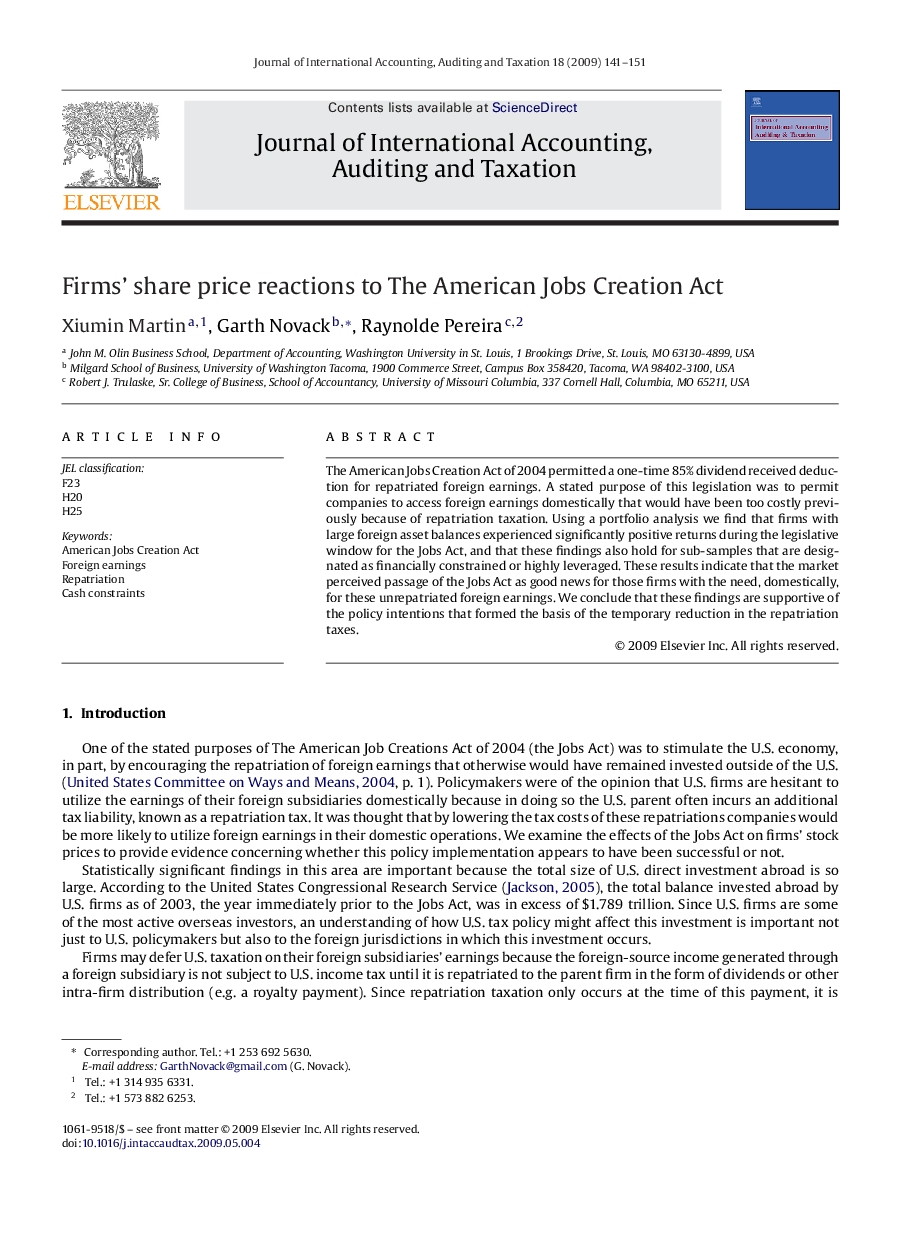| Article ID | Journal | Published Year | Pages | File Type |
|---|---|---|---|---|
| 1001291 | Journal of International Accounting, Auditing and Taxation | 2009 | 11 Pages |
The American Jobs Creation Act of 2004 permitted a one-time 85% dividend received deduction for repatriated foreign earnings. A stated purpose of this legislation was to permit companies to access foreign earnings domestically that would have been too costly previously because of repatriation taxation. Using a portfolio analysis we find that firms with large foreign asset balances experienced significantly positive returns during the legislative window for the Jobs Act, and that these findings also hold for sub-samples that are designated as financially constrained or highly leveraged. These results indicate that the market perceived passage of the Jobs Act as good news for those firms with the need, domestically, for these unrepatriated foreign earnings. We conclude that these findings are supportive of the policy intentions that formed the basis of the temporary reduction in the repatriation taxes.
